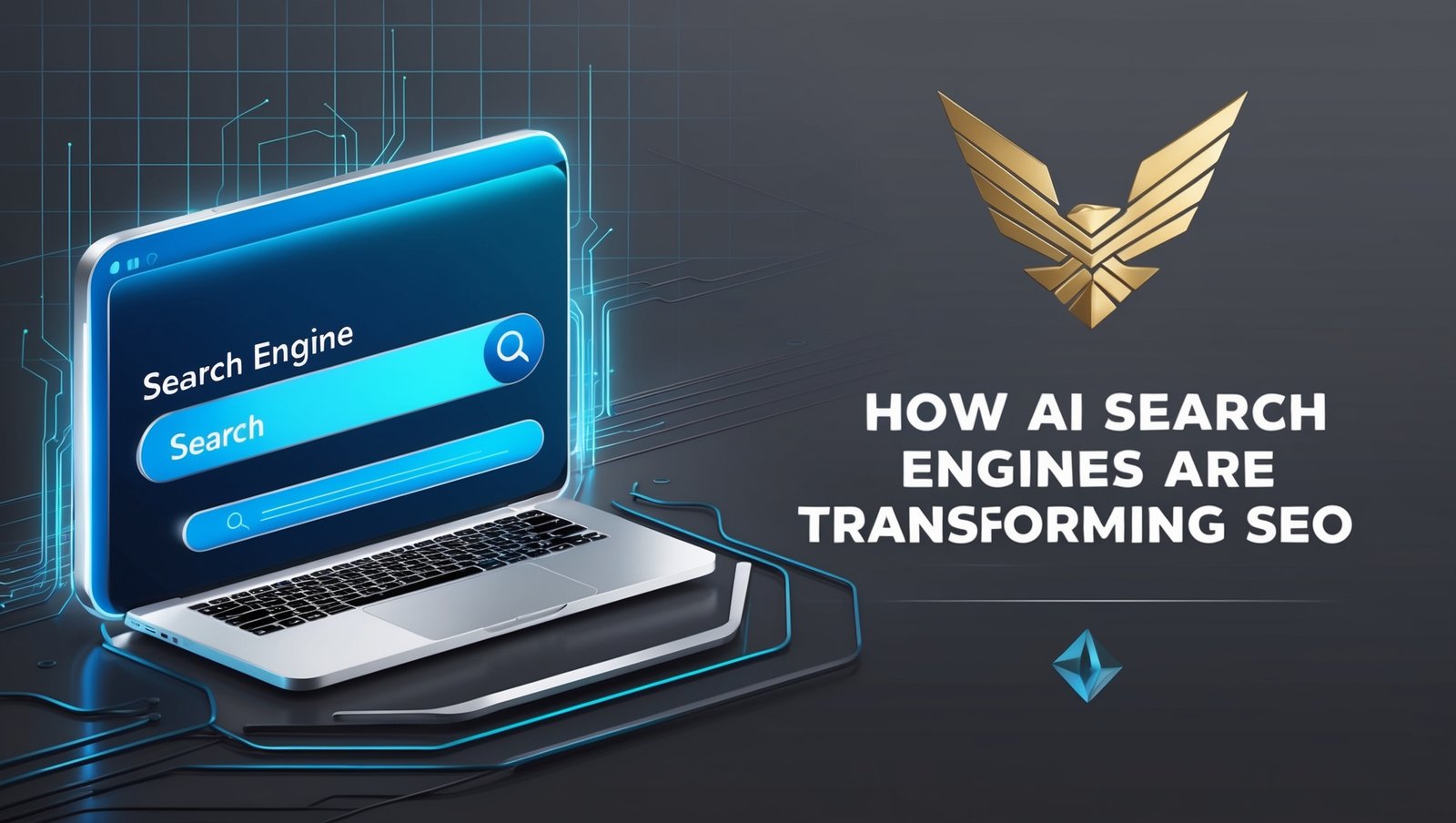Search Engine Optimization (SEO) has long been essential for businesses aiming to increase their online visibility. However, with the rise of AI-driven search engines such as Google’s RankBrain and Bing’s AI-powered algorithms, the SEO landscape has dramatically shifted. These technologies prioritize understanding user intent and context, making traditional keyword-based strategies insufficient. At Eagle Wing Marketing, we specialize in helping businesses navigate this new era of AI-driven SEO. Here’s what you need to know about how AI search engines work, the challenges they pose, and how to stay ahead.
How AI Search Engines Work
AI-powered search engines enhance precision and user experience by leveraging technologies such as machine learning, Natural Language Processing (NLP), and neural networks. Here’s how:
1. Natural Language Processing (NLP)
- AI algorithms like Google’s BERT and RankBrain prioritize conversational and intent-based searches. Instead of just matching keywords, they interpret the meaning behind user queries to deliver relevant results.
2. Contextual Relevance
- These algorithms analyze user behavior, location, and history to personalize search results. This shift has made local SEO and content relevance more critical than ever.
3. Learning from User Interaction
- Through machine learning, AI continuously refines its predictive capabilities by analyzing large datasets and user behavior patterns.
How AI is Transforming SEO
AI has introduced significant changes to how businesses approach SEO. Key transformations include:
1. Optimizing for Semantic Keywords
- AI prioritizes semantic search, understanding concepts and user intent rather than exact keyword matches.
Action: Incorporate contextually rich and intent-driven phrases in your content to align with semantic search requirements.
2. Creating High-Quality, In-Depth Content
- AI values content that addresses user queries comprehensively and authoritatively. Pages with clear, well-structured solutions outperform keyword-stuffed pages.
Action: Focus on creating conversational, solution-oriented content that addresses user pain points effectively.
3. Personalized Content Strategies
- AI-enabled search engines like Bing personalize results based on user behavior, making one-size-fits-all content strategies ineffective.
Action: Develop dynamic content strategies that cater to diverse audience perspectives and needs.
The Role of Technical SEO in AI-Driven Search
AI algorithms increasingly rely on technical SEO parameters such as website structure, speed, and usability.
1. Core Web Vitals
- Metrics like page load speed, responsiveness, and visual stability directly influence rankings.
Tip: Ensure your website is optimized for fast loading, seamless navigation, and a stable user experience.
2. Structured Data
- Schema markup helps AI algorithms interpret your content more effectively, increasing the likelihood of rich snippets.
Tip: Use structured data to highlight FAQs, reviews, and product features.
3. Mobile Optimization
- Mobile-first indexing is now the norm, making responsive design a ranking necessity.
Tip: Build web pages with responsive designs, quick load times, and intuitive navigation for mobile users.
Challenges of AI in SEO
1. Adapting to AI Algorithm Updates
- AI algorithms evolve rapidly, requiring constant vigilance to stay updated.
Tip: Follow trusted resources like Google Search Central to stay informed about algorithm changes.
2. Competing for SERP Features
- Features like snippets and FAQs occupy prime SERP real estate, reducing organic click-through rates.
Tip: Optimize your content specifically for these features to boost visibility.
3. Privacy-Focused Search Engines
- Search engines like DuckDuckGo limit user data for targeted advertising, posing challenges for personalized SEO strategies.
Tip: Create high-quality, versatile content that appeals to a broad audience.
Opportunities in AI-Driven SEO
1. Voice Search Optimization
- AI-driven voice search relies on conversational keywords and natural language.
Tip: Develop FAQ-style content using casual, conversational language to align with voice search patterns.
2. Enhanced Local SEO
- AI’s focus on user context makes local optimization more crucial than ever.
Tip: Optimize your Google Business Profile and incorporate location-specific keywords in your content.
3. Data-Driven Insights
- AI tools offer actionable insights into user behavior and content trends.
Tip: Leverage these insights to create evergreen content that addresses users’ needs effectively.
FAQs About AI and SEO
1. What is semantic search, and why is it important?
Semantic search analyzes the intent and context of user queries, delivering more accurate and relevant results.
2. How does AI affect content creation?
AI enables the creation of high-quality, problem-solving content, emphasizing relevance and authority.
3. Is technical SEO still relevant in the age of AI?
Yes, AI prioritizes technical aspects such as page speed, mobile responsiveness, and structured data for ranking.
4. How can I optimize content for voice search?
Use conversational language and an FAQ format to naturally address user queries.
5. Will AI replace traditional SEO methods?
No, but it will enhance them. Businesses must adapt to AI-driven search trends to remain competitive.
How Eagle Wing Marketing Helps You Stay Ahead
At Eagle Wing Marketing, we understand the complexities of AI-driven SEO and help businesses adapt to this evolving landscape. From creating user-centered content to refining technical SEO, we ensure your online presence stays competitive.
Embrace the opportunities AI brings to SEO, and let us guide you through this transformation. Ready to elevate your SEO strategy? Contact Eagle Wing Marketing today!









